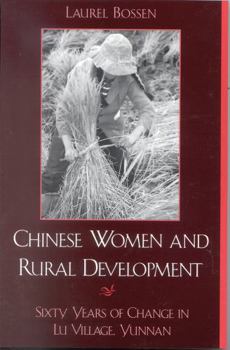Chinese Women and Rural Development: Sixty Years of Change in Lu Village, Yunnan
Select Format
Select Condition 
Book Overview
Rich in its historical perspective on women and men in the context of economic development, this ethnography provides a unique window on rural China since the 1930s. Laurel Bossen uses her detailed knowledge to explore theories regarding such momentous changes as the demise of footbinding, the transformation and feminization of farming, the rise of family planning, and the question of missing daughters. Based on research conducted during the 1990s in Lu Village and informed by Fei Xiaotong's classic 1930s study of the same village, the book goes beyond the enduring myths of women as either victims or heroes. Throughout, Lu Village women defy stereotypes, their stories expressing the range of economic, social, and political practices that are both upholding and altering the boundaries of gender in the face of shifting state and market forces.
Format:Paperback
Language:English
ISBN:0742511081
ISBN13:9780742511088
Release Date:January 2002
Publisher:Rowman & Littlefield Publishers
Length:432 Pages
Weight:1.48 lbs.
Dimensions:1.0" x 6.0" x 9.0"
Customer Reviews
1 rating
Inequality and Social Change
Published by Thriftbooks.com User , 21 years ago
I have used this book in an undergraduate anthropology course titled, "Gender, Class, Race-ethnicity and Development." Most students were juniors or seniors, but knew little or nothing about China. The book was very favorably received. Students were particularly interested in the chapters on footbinding and shamanism, not only because of their intrinsic interest, but especially because of the way that Bossen links these practices to longterm economic processes. They also felt that Bossen's transparency with regard to the complex steps she took to build her analysis gave them precious insight into social science methodologies. I recommend this book highly, not only for scholars of Asia and China or of women's and rural studies, but also for coursework that focuses more generally on questions about inequality and social change.





